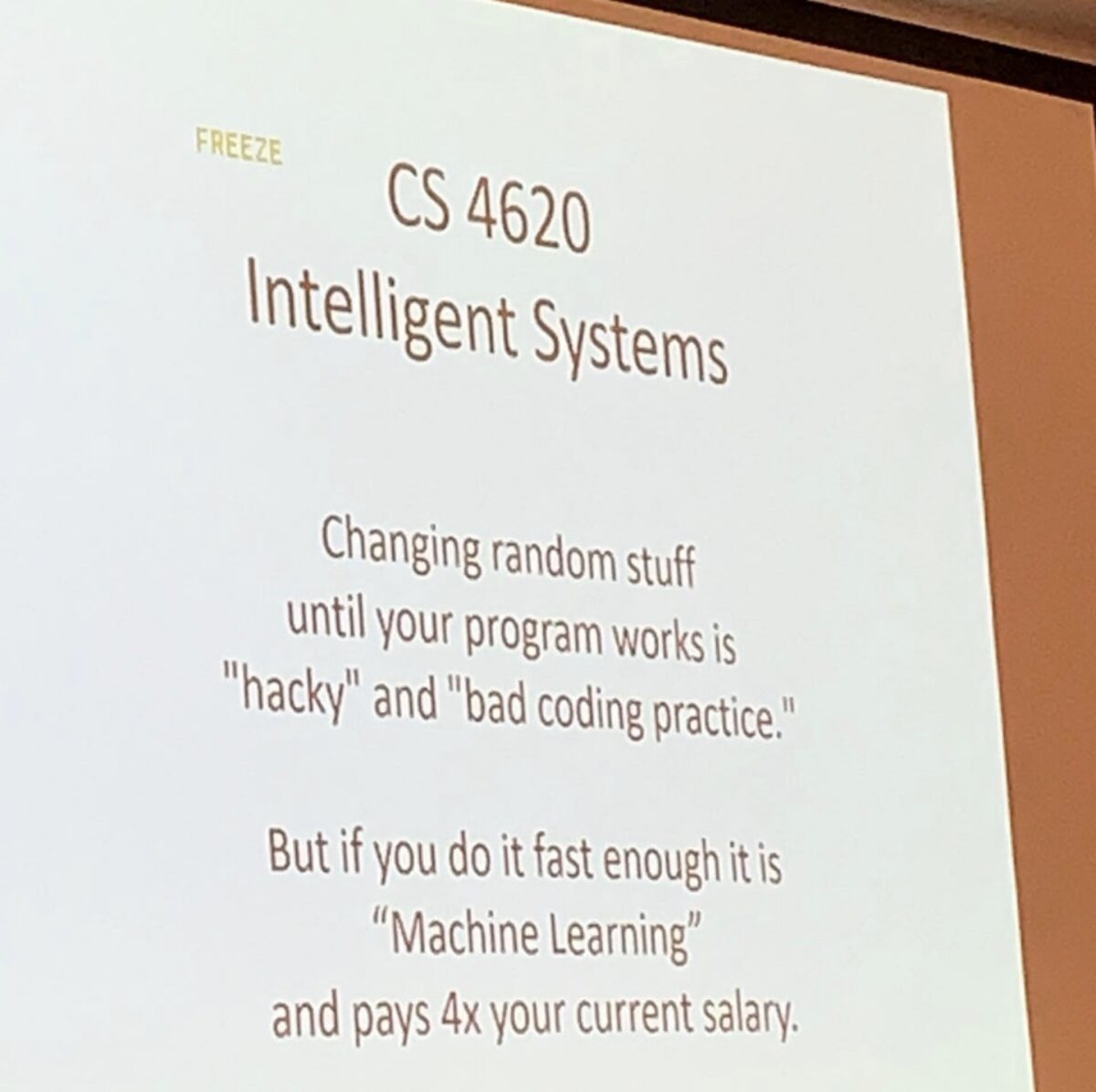Only days after Clearview hit the news, The Economist runs an article on how the Combating Terrorism Technical Support Office (CTTSO), an agency of the US defence department, has developed another dystopian tool to identify people by their heartbeat.
Blog
-
The Y2038 Problem
The Y2038 problem is similar to the Y2K problem. We’re exactly in between both about now. Both are 18 years away, in either direction. While Y2K is over and was obvious to everyone, Y2038 is not.
The issue here relates to a representation of date and time in Unix systems, and is therefore sometimes referred to as Unix Y2K. The root is the convention to store date and time information as 32bit unsigned integer in such systems. This means, possible values are limited. Time-differences in seconds, starting from 01.Jan 1970 cannot span beyond 03:14:07 UTC on 19 January 2038.

Calendar The Y2038 problem will make all calculations beyond this date impossible, until migrated to another representation. At the time being, this seems far away. However, the problem casts its shadows already. Industries, in particular financial markets, often rely on long term forecasts.
Governance issued treasury bonds come with with the longest maturity. Often twenty years, sometimes thirty years. Calculations for complex, long running financing models easily try to estimate returns 20 years and beyond into the future. This is already beyond the problematic date that Y2038 brings. The code to run these calculations is typically complex and stable. Sometimes, it is as old as from 1970. Back then, this date-representation Unix engineers introduced this approach. 32bit covered a long period. John Femellia has a thread, over at Twitter, telling a story about the upcoming issues today.
-
This week in dystopia.
This week in dystopia: The New York Times has an article about the next steps in dystopian future. A start-up evolving face recognition algorithms, fed by a database with facial images, scraped from the open web.

Clearview – This week in Dystopia. A little-known start-up helps law enforcement match photos of unknown people to their online images — and “might lead to a dystopian future or something,” a backer says.
The New York Times: The Secretive Company That Might End Privacy as We Know ItFurther, the article describes the sheer size of the database. At a rate of massive duplicate numbers, three billion images is still impressive.
The system — whose backbone is a database of more than three billion images that Clearview claims to have scraped from Facebook, YouTube, Venmo and millions of other websites — goes far beyond anything ever constructed by the United States government or Silicon Valley giants.
The New York Times: The Secretive Company That Might End Privacy as We Know ItIn times in which criticism of big tech is on the rise. Just this week Jannis Brühl, Head of Tech News Department at @sueddeutsche Zeitung published an opinion that this technology is dangerous and should be banned,. The article include an appeal to German government to create legislation to do so. Jannis is in good company with other tech critics like Eyvgen Morozov
Source: The Secretive Company That Might End Privacy as We Know It
-
Product Owner vs. Product Manager
Product Owner vs. Product Manager: Product Management is a challenging role and requires diverse skills. Large organisation often introduce a split between two similar, close roles – Product Ownership and Product Management. Both requires a large set of skills.
Jordan Bergtraum, The Product Mentor, a mentor at The Product Guy, leads a conversation on this split.
Source: The Product Guy.
-
Microsofts Patch Tuesday
Y’all install Microsoft Patch Tuesday patches within 24h, right? This time Krebs On Security has some rumours that make you want to really install these patches in time.
Update: Washington Post reports, the NSA warned Microsoft about it.
-
British Royal Mail issues computer games stamps
British Royal Mail issues computer games stamps writes BoingBoing:
BoingBoing.net 
Worms, Wipeout, Micromachines & Sensible Soccer The article features pictures of these stamps. Those who remember the times will find these adorable. The stamps are apparently available as first or second class stamps, at £1.60 or £1.55, and also in collectors sets.
Do I know enough people in the UK to send me postcards with stamps from:
- Elite(1984)
- Dizzy (1987)
- Populous (1989)
- Lemmings (1991)
- Micro Machines (1991)
- Sensible Soccer (1992)
- Wipeout (1995)
- Worms (1995)

Lemmings, Popoulus, Dizzy and Elite each? Germany, meanwhile, is still debating whether computer games are hazardous and the people involved in the scene should be observed.
-
The North Star Playbook
The North Star
As a concept, the North Star principle gained a lot of attention in Product Management recently. Amplitude, a vendor of analytics tools, has a guideline to this concept. Their playbook walks product managers, those that want to enter the domain or even those just curious about methods and principles through the ideas. But also sets the scenes for potential applications by walking through exemplary goals to achieve with this approach.
The playbook comes in 7 chapters, starting by describing the ideas to apply with the North Star concept. Only after the introduction the playbook enters the practical application of the concept, and with a chapter on product metric checklist checklists, it emphasises the importance of metrics. With this it also stresses the importance of selecting the right metric and not to lose a product in vain. E.g. active users would be the wrong metric, given the goal that shall be achieved.
More practical guidelines come with the chapter on running workshops in part 3, and the chapter on defining the right guiding metrics. In between, the document also gives success stories: there are sections that talk through a successful implementation of North Star at Netflix. But also Amplitude is leveraging the methodology and shares their experience in a section.
The closing chapters dedicate to debugging the processes attached, implementing them and over time changing directions.
Takeaway
In all the recent hype around the method, the key take away is to simplify ideas for your organisation. The approach is supposed to make it easy for your teams to understand the direction the product is taking. And even more following this direction. For a product management, communicating ideas should be a core skill. This approach gives great tools in doing so.
The guide to discovering your product’s North Star to improve the way you manage and build products.
from the Amplitude PlaybookSource: Amplitude – The North Star Playbook
-
Arduino launches IoT platform
Arduino launches IoT platform: With the Portenta H7 Arduino announces a Platform targeted at small and medium businesses. It comes with all the connectivity necessary to enable devices classified as Internet of Things: WiFi, BLE, with physical connectivity to USB and SD-Cards, plus the well known Camera or UART connectivity. TechRadar also mentions LTE. Here is the article from TechCrunch:
Arduino, the open-source hardware platform, today announced the launch of a new low-code platform and modular hardware system for IoT development. The idea here is to give small and medium businesses the tools to develop IoT solutions without having to invest in specialized engineering resources. The new hardware, dubbed the Arduino Portenta H7, features everything […]
Source: Arduino launches a new modular platform for IoT development | TechCrunch
-
Fairy Dust

Fairy Dust Das obligatorische Foto der Rakete “Fairy Dust“, die der Chaos Computer Club seit 1999 als Logo verwendet. Fairy Dust, wie die Rakete seit dem Chaos Communication Camp 2003 liebevoll getauft wurde, ist 7m groß. Damit macht das Modell auch in einer Halle wie der Messe Leipzig einen bleibenden Eindruck. Eine Lichtinstallation wie ihre glitzernde Oberfläche setzen “Fairy Dust” entsprechend in Szene. Neben der Fairy Dust finden sich in dem Umfeld 2 andere Logos. Zum einen der Datenknoten, der das erste offizielle Logo des Club darstellt.



